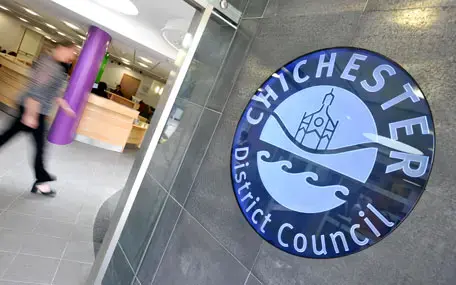Peter Wilding, cabinet member for finance at Chichester District Council, says vital public service will be protected after a 10p-a-week increase to average council tax bill was given the green light.
Frontline services will continue to be protected now that that the average Band D council tax payer will pay £3 a week for services provided by the council, he says.
The decision was made at a meeting of full council yesterday. Chichester District Council charges one of the lowest council tax rates in the country due to the amount of savings it has made over the past few years.
Although the council collects the council tax, this is then distributed to a number of public services. The council’s share equates to around nine per cent of the amount paid each year. The rest goes to: West Sussex County Council (around 79 per cent); Sussex Police (around nine per cent), and parish councils (three per cent on average).

Each of these public service providers makes decisions about its council tax increases independently, and will finalise their amounts for the next financial year in the coming weeks.
And councillor Wilding said: “We are keen to keep council tax as low as we can, while still being able to protect vital public services for our residents.
“The council is continuing to work hard to ensure that support is in place for the people in our community who need it most. We also recognise that we need to make further savings to cope with cuts to our Government funding and so we continue to work on our deficit reduction plan.
“This aims to generate further income and savings over the next few years, which we hope will minimise future council tax increases.
“Although we collect all of the council tax, we only keep around 9 per cent of this. We feel that £3 a week for the average taxpayer is excellent value for money considering the many services we deliver 24 hours a day, seven days a week. We have been able to achieve this through proactive and robust financial planning.
“With significant government cuts, this has not been easy. However, we have done everything possible to reduce our costs, while continuing to maintain important frontline services.
“Unlike many other local authorities, we are also making sure that we protect those on low incomes by continuing to maintain the same level of council tax reduction that we offer. This means that those on low incomes will be protected from any council tax increase.”





